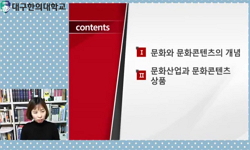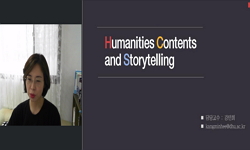The Gangneung Coffee Festival has continually developed through the collaboration between the city of Gangneung and its local residents, emerging as a unique regional festival centered around coffee culture. Since its inception in 2009, the Gangneung ...
http://chineseinput.net/에서 pinyin(병음)방식으로 중국어를 변환할 수 있습니다.
변환된 중국어를 복사하여 사용하시면 됩니다.
- 中文 을 입력하시려면 zhongwen을 입력하시고 space를누르시면됩니다.
- 北京 을 입력하시려면 beijing을 입력하시고 space를 누르시면 됩니다.

The Process of Festivalization Througsssh the Formation and Production of Regional Culture: Focusing on the Gangneung Coffee Festivalss
한글로보기https://www.riss.kr/link?id=A109469860
- 저자
- 발행기관
- 학술지명
- 권호사항
-
발행연도
2024
-
작성언어
English
- 주제어
-
등재정보
KCI등재
-
자료형태
학술저널
-
수록면
619-644(26쪽)
- DOI식별코드
- 제공처
-
0
상세조회 -
0
다운로드
부가정보
다국어 초록 (Multilingual Abstract)
Ultimately, the festival became a key catalyst for embedding coffee culture as a cultural asset within Gangneung's local community, fostering its development and growth. Externally, the festival introduced Gangneung’s coffee culture to tourists through various programs, including experiential activities such as the "stamp tour," where visitors explored specialized coffee shops. This helped to showcase Gangneung’s charm and attracted a significant number of tourists each year, becoming a crucial driver for local business and tourism revitalization.
Visitors, through their coffee-centered experiences, interacted with local residents and developed positive perceptions of the region. This positioned Gangneung as a central destination for coffee tourism and helped to strengthen the region's economic and cultural assets, solidifying its identity as the "City of Coffee." The Gangneung Coffee Festival offers local residents a source of pride and provides external tourists with opportunities to experience the region’s coffee culture, playing a significant role in establishing Gangneung as a "coffee tourism destination." This regional identity, in turn, links to the local economy, creating both direct and indirect ripple effects on the regional economy.
The growth of the festival has directly contributed to the quantitative and qualitative development of local coffee shops, and the coffee industry—centered around roasting & brewing—has become an important economic asset for the region. Indirectly, the festival has also had a positive impact on local businesses and the tourism industry. As a successful example of simultaneous cultural and economic development, the Gangneung Coffee Festival demonstrates the importance of cultivating and forming unique regional identities through festivals, highlighting its distinctive significance.
The Gangneung Coffee Festival has continually developed through the collaboration between the city of Gangneung and its local residents, emerging as a unique regional festival centered around coffee culture. Since its inception in 2009, the Gangneung Coffee Festival has played a crucial role in advancing the coffee industry and cultural development in Gangneung, while also boosting the local economy and increasing the festival’s value as a tourism resource. The initial development and operation of the festival were driven by the contributions of first-generation Korean baristas who settled in Gangneung, highlighting the region’s coffee culture, especially through the "roasting & brewing" style. This particular focus was further commercialized and promoted for tourism through organizational restructuring and collaboration among local private broadcasters, local governments, and related organizations.
Ultimately, the festival became a key catalyst for embedding coffee culture as a cultural asset within Gangneung's local community, fostering its development and growth. Externally, the festival introduced Gangneung’s coffee culture to tourists through various programs, including experiential activities such as the "stamp tour," where visitors explored specialized coffee shops. This helped to showcase Gangneung’s charm and attracted a significant number of tourists each year, becoming a crucial driver for local business and tourism revitalization.
Visitors, through their coffee-centered experiences, interacted with local residents and developed positive perceptions of the region. This positioned Gangneung as a central destination for coffee tourism and helped to strengthen the region's economic and cultural assets, solidifying its identity as the "City of Coffee." The Gangneung Coffee Festival offers local residents a source of pride and provides external tourists with opportunities to experience the region’s coffee culture, playing a significant role in establishing Gangneung as a "coffee tourism destination." This regional identity, in turn, links to the local economy, creating both direct and indirect ripple effects on the regional economy.
The growth of the festival has directly contributed to the quantitative and qualitative development of local coffee shops, and the coffee industry—centered around roasting & brewing—has become an important economic asset for the region. Indirectly, the festival has also had a positive impact on local businesses and the tourism industry. As a successful example of simultaneous cultural and economic development, the Gangneung Coffee Festival demonstrates the importance of cultivating and forming unique regional identities through festivals, highlighting its distinctive significance.
동일학술지(권/호) 다른 논문
-
상호교차성 페미니즘 관점에서 본 드라마 <파친코> : 교차적 억압이 캐릭터 형성에 미치는 영향
- 한국예술교육학회
- 이정민
- 2024
- KCI등재
-
고레에다 히로카즈 영화 <괴물>의 서사전략 연구 : 정보 제어 관점으로
- 한국예술교육학회
- 송예진
- 2024
- KCI등재
-
가야금산조 ‘중중모리’에 나타나는 시김새 분석 : 7개 유파 가야금산조를 중심으로
- 한국예술교육학회
- 장원희
- 2024
- KCI등재
-
국내 창작 뮤지컬의 ESG 가치 실현 사례 연구- 뮤지컬 <북극곰 로라>의 사례를 중심으로-
- 한국예술교육학회
- 유채하
- 2024
- KCI등재




 KISS
KISS






